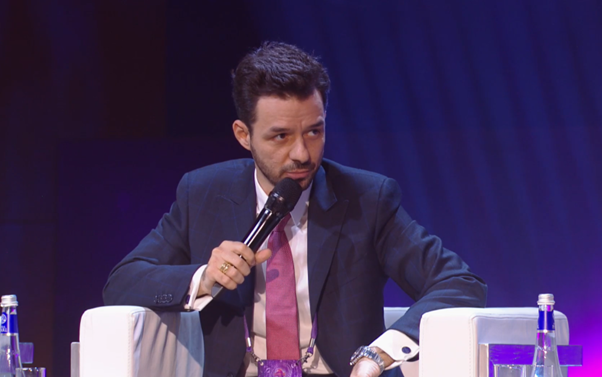
“Thinking and reflection of the present and future of patients recovered from COVID-19”: how to treat post-COVID syndrome?”

Over the past two and a half years, almost everyone has faced COVID one way or another. COVID-19 is an unpredictable disease, and its effects can vary. As after any respiratory infection, patients recovered from coronavirus may experience exacerbations of chronic diseases and a decrease in immunity resistance to external factors. The residual changes in the lungs are observed in 27% of patients in one year after the COVID-19 recovery.[1]
The experts discussed all the consequences of the dangerous disease and shared their experience in the treatment of post-COVID syndrome as part of the symposium "Thinking and reflection of the present and future of patients recovered from COVID-19" at the XXXII National Congress on Respiratory Diseases. .
Sergey Babak, MD, Professor of the Department of Phthisiology and Pulmonology at the Medical Faculty of the MSUMD n.a. A.I. Evdokimov, noted that there are several disease phases of the new coronavirus infection: acute phase (up to 4 weeks), subacute phase (4–12 weeks), and post-COVID syndrome (characterized by symptoms that persist after 12 weeks, and they cannot be explained by alternative diagnosis). The post-COVID symptoms can be of various type: neurological, gastro-interstitial, psychiatric, respiratory (e.g., cough and shortness of breath).
Andrey Malyavin, MD, Professor of the Department of Phthisiology and Pulmonology at the Medical Faculty of the MSUMD n.a. A.I. Evdokimov, spoke about the treating tactics of various COVID consequences. When suffering from organizing pneumonia, professor advises a complex therapy administration, including an antiviral and anti-inflammatory drugs, as well as drugs that affect the mechanisms of lung tissue remodeling. As an example, the expert noted “Longidaza”, original Russian antifibrotic drug, also recommended as a part of the pulmonary fibrosis complex therapy.
Sergey Babak Sergey Babak “Longidaza” group compared to 18.8% in the control group. The study participants who received the drug also experienced a significant reduction in the shortness of breath and an increase in the exercise tolerance. According to the professor, this result is brilliant in terms of therapy outcomes.
Victoria Vavilova, Candidate of Medical Sciences,also spoke about the serious problem of post-COVID syndrome. The fibrotic changes are most often recorded in patients recovered from severe COVID-19, while there are also those who had mild case, but they still have residual changes in the lungs for quite a long time. The new coronavirus infection can also provoke existing lung diseases.
Pulmonary fibrosis can be a death cause for patients recovered from COVID, and even if this is avoided, those who have been ill for a long time may experience impaired lung function. “Longidaza” helps to reduce a tissue fibrosis improving its elasticity. The drug can prevent formation of new scars at the inflammation site and improve oxygen diffusion process.
According to Andrey Malyavin, fibrosis formation mechanisms have not yet been fully studied by doctors, and additional research is required in order to advance in this issue.
1Temporary guidelines, version 16, 08/18/2022. “Prevention, diagnosis and treatment of new coronavirus infection (COVID-19)”.
Mikhail Grubman at the “Right to Health” congress: We all share in the common cause...


